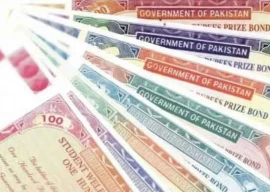
According to the Karachi Traders Association Chairman Siddiq Memon and Karachi Tajir Ittehad Chairman Jamil Paracha, sales of shops within formal markets are affected by 30-40 per cent since the vendors can price their products lower as they do not pay sales tax and electricity bills. Their only cost is the price they pay to keep the authorities at bay.
These vendors cost the economy billions of rupees every year as well due to tax evasion and electricity theft, they added.
Activity in markets has already fallen by 50 per cent due to the law and order situation in the city and rising inflation throughout the country.
Memon and Paracha also pointed out the traffic congestion caused by such vendors and the problems they pose for pedestrians. The two chairmen also said that the congestion was part of the reason for crimes near banks and ATMs.
According to an informal survey carried out by The Express Tribune, more than 25,000 such vendors have set up stalls illegally in the 580 major trade centres of the city. Markets such as Saddar, Tariq Road, Hyderi, Bolton Market, Lighthouse, Liaquatabad and Paposh have become a hub for such roadside vendors.
However, the two traders admitted that these vendors do provide some form of relief to the general public in these times of spiralling prices but said that they ought to be allocated space in separate empty plots within the city. They said that traders’ associations are not opposed to these vendors in any way but want to ease the troubles of shoppers and pedestrians while navigating through markets.
They further said that these vendors are the first to be targeted during violence and rioting and it is in the vendors’ best interest to set up shops in such plots.
Memon and Paracha added that the government should include representatives from the city’s various market associations, in collaboration with the police and town administration, when forming a task force to combat encroachments.
Setting up shop
Vendors are allocated a space of between three and five feet on the footpath and plots for the allocation of a new stall are selected by contacting current stall owners and a new stall usually costs around Rs5,000-10,000 in bribe for the police.
Weekly and monthly payments to anti-encroachment officials, the police and political elements are fixed at between Rs500 and Rs5,000 per month.
Illegal electricity connections are supplied to these roadside vendors at a monthly cost of Rs500-2,000 in collaboration with Karachi Electric Supply Company officials.
These stalls eventually cement their location with the assistance of the land mafia, political elements and the town administration. Their existence is then protected unlawfully by the police who claim a monthly charge for their services.
Due to the absence of parking space, extortionists are also profiting under the pretext of charged parking, in which traffic police officials have a share as well.
Published in The Express Tribune, November 13th, 2010.









1732486769-0/image-(8)1732486769-0-270x192.webp)







COMMENTS (1)
Comments are moderated and generally will be posted if they are on-topic and not abusive.
For more information, please see our Comments FAQ